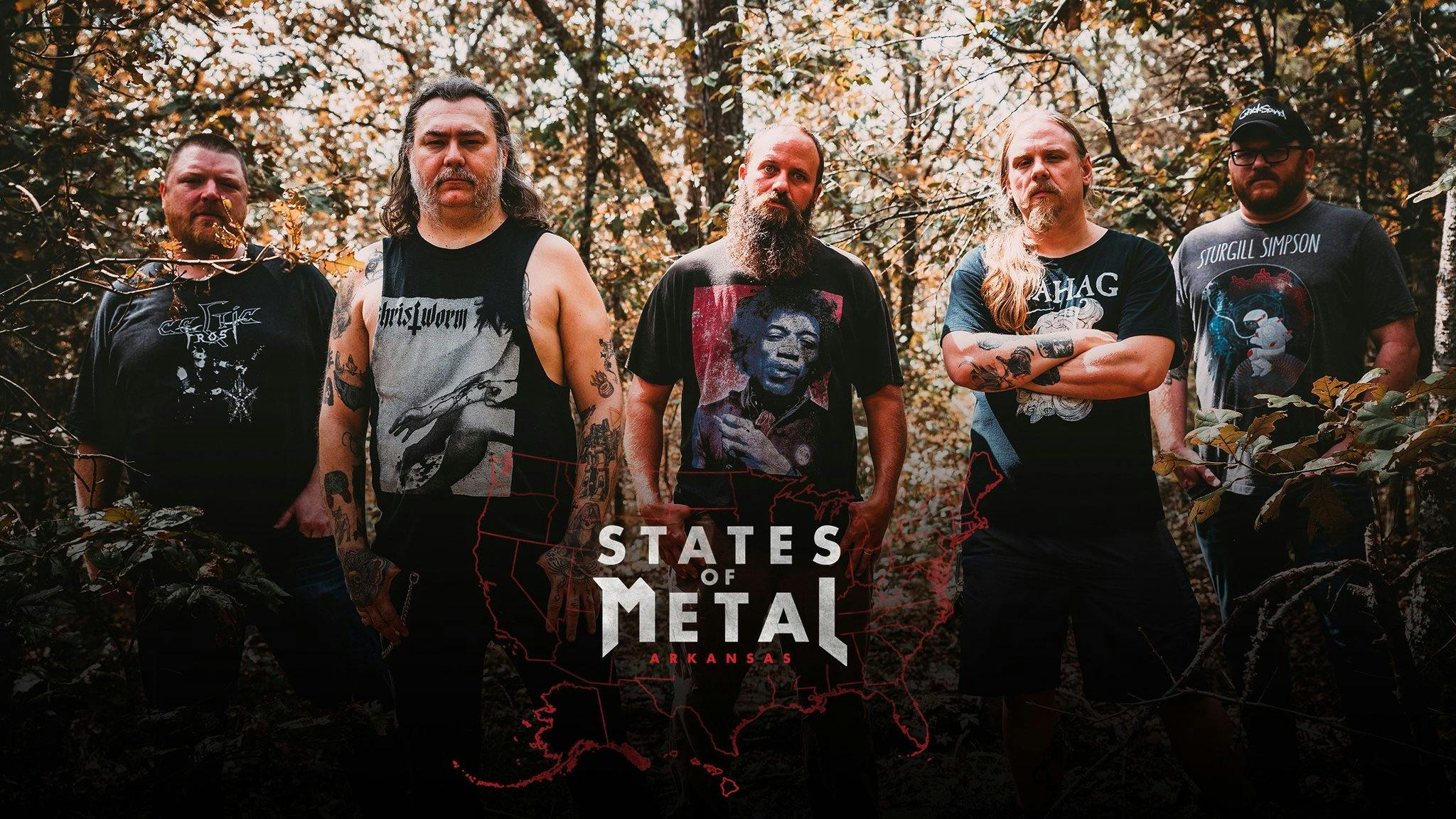Each month, Kerrang! examines the history and current scene of one of the 50 United States in order to better understand the American landscape united under metal. These are the States of Metal.
***
To an outsider, Arkansas might appear to be a typical Southern territory, full of good ol’ boys and laid-back livin’. There are mountains to the north, swamps to the south, and the mighty Mississippi along the eastern border. Meanwhile, the state’s most famous public figures include Bill Clinton, Billy Bob Thornton, Johnny Cash and Al Green. On paper, Arkansas is a picture-perfect snapshot of the American south.
Talk to the metalheads from 29th state, though, and they paint a very different picture. While Arkansas’s headbangers are quick to tell you about the local scene’s creative figureheads and strong DIY work ethic, they’ll also tell you about something that lurks beneath the surface -- something way less Faulkner, way more Stephen King.
“Little Rock makes Salem’s Lot look like fucking Disneyland,” says Nate Garrett. A former resident of Fayetteville, Arkansas, Nate is best known as frontman for epic doom metallers Spirit Adrift and guitarist for OSDM crew Gatecreeper, both from Arizona. Perhaps it’s that distance that allows him to so hauntingly describe Arkansas's undercurrent of menace. “People have different theories about it -- there are Native American burial mounds there, for example. I don’t think it’s something anyone can quantify. But the people that have grown up there their whole lives, it’s as accepted as gravity.”
